| | In this edition, we talk with the legislators who think they’ve found a way to restrict online porn,͏ ͏ ͏ ͏ ͏ ͏ |
 | David Weigel |
|
In this edition, we talk with the legislators who think they’ve found a way to restrict online porn, catch up on elections in the Midwest, and hear from a Republican pollster who wants voters to pay attention to the state-by-state numbers he’s seeing for Donald Trump and Ron DeSantis. Anti-porn activists are scoring big wins after a 21st century rebrand |
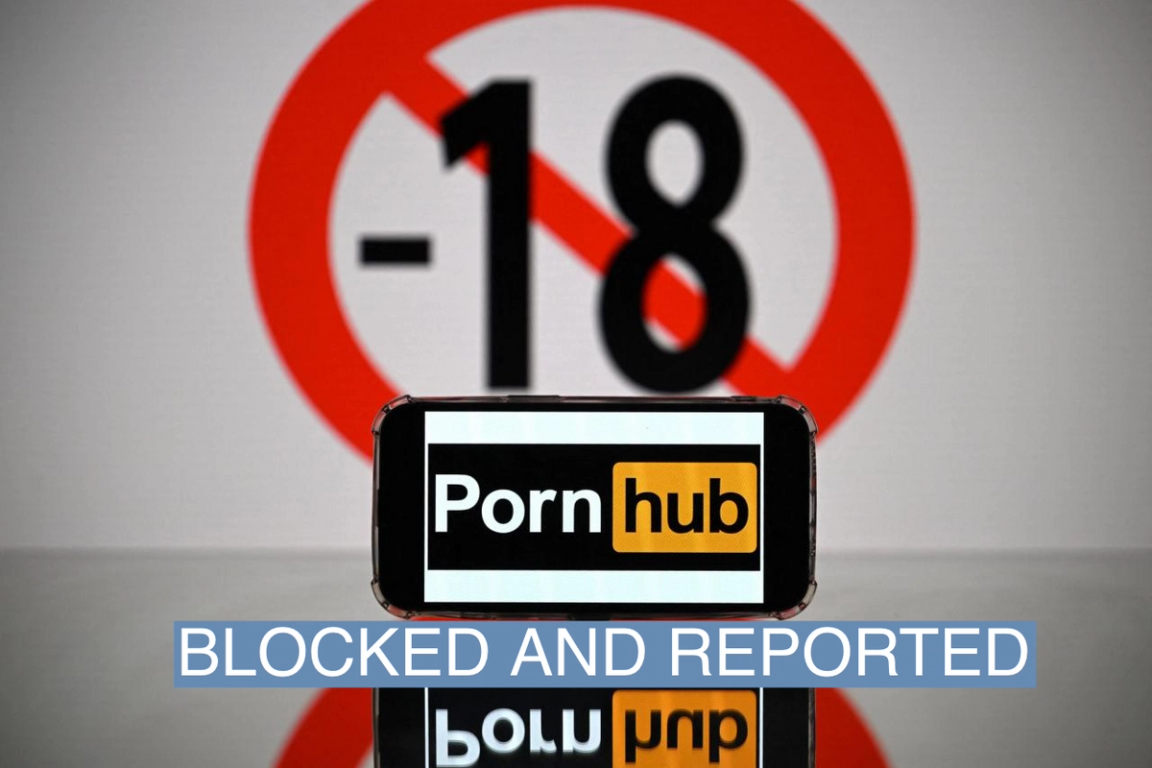 LIONEL BONAVENTURE/AFP via Getty Images LIONEL BONAVENTURE/AFP via Getty ImagesTHE NEWS Utah state Sen. Todd Weiler doesn’t mind the jokes. In 2016, after the Republican passed a resolution on the “public health crisis” of pornography and proposed a bill that would let individuals sue its producers for inflicting psychological harm, he was mocked by late night comics; Stephen Colbert even made a fake ad for “pornography lawyers.” This week, as his law requiring tougher age verification from adult sites went into effect, Weiler shared his hate mail on social media (“I hope your wife stops putting out,” one message read). “I grew up watching David Letterman’s viewer mailbag,” Weiler told Semafor. “I think it’s fun for people to see what kind of feedback I’m getting, especially when it’s over the top.” Weiler was winning, and Utah was setting a trend. Since 2016, fourteen other states have passed resolutions that declare pornography a public health crisis, in line with tobacco or drunk driving. This year, Utah and Louisiana implemented similar laws that make media companies liable if people under 18 access pornography. “I don’t think that the point of this is child protection,” said Mike Stabile, the public affairs director of the Free Speech Coalition, which on Wednesday filed a challenge to the Utah law. “I think the point is the chilling effect. In the Utah case, we cannot find an age verification provider that complies with the law, meaning that the law as written doesn’t actually allow compliance.” The age-verification law, which passed unanimously, inspired Pornhub to block any Utah-based ISP from the site; anyone who tried to visit saw a sex-free video from adult performer Cherie Deville urging them to contact their legislators. Weiler laughed about how many VPNs he must have sold, which allow residents to bypass the restrictions by hiding their location. The trade-off — some ridicule from liberals, but no PornHub access — was just fine by Utah’s Republicans. “I fully support Pornhub’s decision to remove their content in Utah,” Gov. Spencer Cox said in a statement. The new state laws would make it harder for minors to access pornography than at any time since life went online — if they’re upheld. Both laws were criticized as possible First Amendment violations on the way to passage; in Louisiana, Democratic Sen. Jay Luneau warned the law’s sponsor, Rep. Laurie Schlegel, that the state might spend “hundreds of thousands of dollars” on lawyers before it was struck down. Schlegel, a licensed sex addiction therapist, told Semafor that she studied precedent before writing the bill, and made sure the technology made it workable. “The precedent says that government has a compelling interest to protect children, and we’ve neglected that for the last couple of decades,” she told Semafor. She also consulted the National Center on Sexual Exploitation, a decades-old anti-pornography organization. Benjamin Bull, its general counsel, said that the new age verification law was well-designed to survive a challenge — and in doing so, end the freedom to operate that pornography providers have taken for granted since the passage of the Communications Decency Act. “I count noses at the Supreme Court, and there are at least six votes there to uphold this kind of law,” Bull told Semafor. “They’re looking for the right case to basically eliminate immunity that online providers have enjoyed, through a misreading of Section 230.” DAVID’S VIEW New anti-pornography laws in red states haven’t stirred up the same emotions as abortion bans or anti-trans bills. Nobody’s filling the gallery of state legislatures to defend PornHub, and the conventional wisdom is that the laws won’t be enforceable; that if VPNs don’t make them irrelevant, courts will strike them down. But there is political momentum for restricting access to pornography, starting with the enforcement of laws that already prevent people under age 18 from accessing it — laws that the internet have made difficult to enforce. Anti-porn campaigners are gaining ground by warning about sexual exploitation and damage to young minds, rather than trying to brand material as fundamentally obscene. That change is epitomized by the National Center on Sexual Exploitation: Until eight years ago, it was called Morality in Media. Fears about human trafficking, child abuse, and revenge porn have drawn attention across the political spectrum, from mainstream feminists to the Qanon-addled fringe, and forced major changes at Pornhub and other sites already. “We’re in a political environment where the right, and in some cases the left, is really invested in surveillance and in monitoring what we’re looking at and what we’re purchasing,” said Stabile, the free speech advocate. “I think we should all be scared.” More broadly, anti-porn crusaders have sought to connect a wide range of buzzed-about social trends to their cause. Declining birth rates, decreased sexual activity among young adults, increased loneliness — conservatives see easy access to pornography as the X-factor in all of them. “The generation raised in the last 20-25 years is the first to have basically unlimited exposure to pornography, whenever they want it, on every device,” said Bull, who was previously chief counsel at the conservative Alliance Defending Freedom. “Any psychotherapist will tell you that there’s a growing body of clients and patients that didn’t exist, or hardly existed at all, 30 years ago.” Two of the GOP’s youngest senators have issued the same sort of warnings, and been ridiculed for it. When Ohio’s J.D. Vance told a Catholic magazine that “the combination of porn, abortion have basically created a really lonely, isolated generation,” and that he’d ban pornography if he could, liberal media outlets covered it like a gaffe. When Missouri’s Josh Hawley warned the National Conservatism conference that men were “withdrawing into the enclave of idleness, and pornography, and video games,” he got the same did-he-just-say-that reaction. And he kept saying it. “Why don’t you turn off the computer, and log off the porn, and go ask a real woman on a date?” Hawley advised the young audience at last winter’s Turning Points USA AmericaFest. THE VIEW FROM EUROPE “2023 is the end of access to pornographic sites for our children,” French Minister for Digital Affairs Jean-Noël Barrot told Le Parisien earlier this year. The government is working on its own system of age verification checks, Euronews reports, and American anti-porn activists are watching their efforts closely to see if they succeed. ROOM FOR DISAGREEMENT Libertarians don’t see how any of this would do what proponents say. “Attempting to ban porn would at best be a foolish, expensive, and futile project, and at worst a path to a new and radically expanded police state devoted to punishing people for engaging in acts of consensual self-expression,” Peter Suderman wrote in Reason in 2018. NOTABLE - In the New York Times, Natasha Singer looks at Louisiana’s law as an experiment that could “remake the internet for millions of adults, ushering in a tectonic cultural shift to a stricter, age-gated online world.”
- In Congress, a bipartisan group of legislators are sponsoring the Kids Online Safety Act, which would require publishers to prevent minors from accessing content that could lead to mental health disorders. But CNBC reports that its authors are struggling to satisfy concerns from civil rights groups that its provisions could block a wide range of healthy content and create an avenue for politicized campaigns to expand its reach even further.
|
|
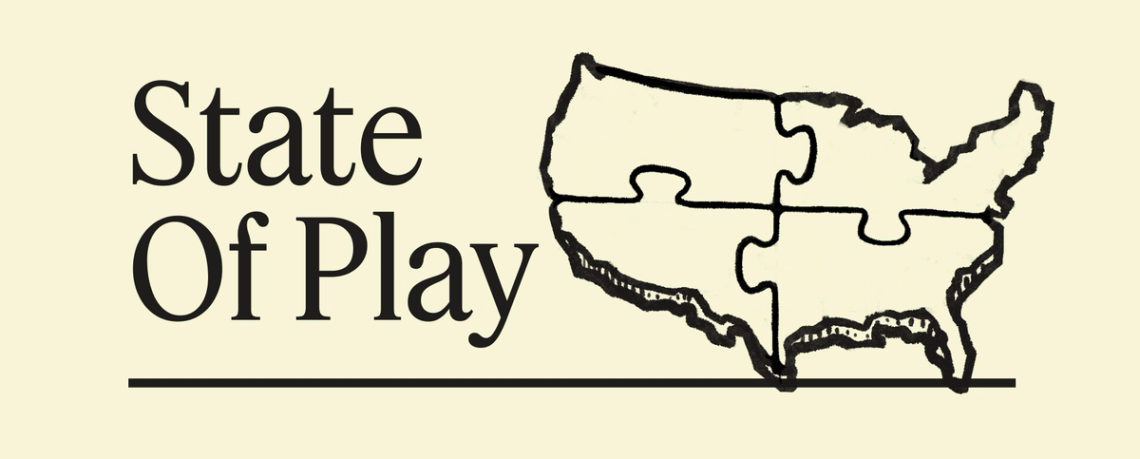 Indiana. Voters in Indianapolis picked Democratic Mayor Joe Hogsett and Republican challenger Jefferson Shreve to face off in November, with the mayor turning back an under-funded Black challenger by a 20-point margin. More people turned out for the Democratic primary (48,462) than the GOP primary (29,076), but Republicans hope that Shreve’s wealth can make the race competitive. Nebraska. Lincoln Mayor Leirion Gaylor Baird won a second term on Tuesday, defeating Republican challenger Suzanne Geist by an 8-point margin. It was the latest mayoral contest where abortion cut against the GOP; Gaylor Baird attacked the Republican for sponsoring anti-abortion bills as a state senator, while Geist won the endorsement of the city’s police union and called the issue a distraction from rising crime. |
|
 YouTube/Joe Biden YouTube/Joe BidenDemocratic National Committee, “Backbone.” Joe Biden kicked off his re-election campaign with contrast ads that attacked Republicans over book bans and abortion rights, while flashing images of the Jan. 6 Capitol attack. Its second round of state buys (running in North Carolina, but not Ohio) is all positive, saluting the 12 million jobs created since January 2021. Most of the dialogue comes from the president himself, seen running between conversations, a visual that the 2020 campaign used to combat the idea that the candidate was frail and in hiding. American Action Network, “He Blew it.” The House GOP’s energy bill brought together years of deregulation ideas that mostly united their party and peeled off four Democrats. Now their super PAC is advertising it in swing districts as a “bipartisan” attempt to lower costs that Democrats, mystifyingly, voted against. Democrats say they don’t see a threat “This bill is a loser for MAGA Republicans,” said House Majority PAC spokesman CJ Warnke. League of Conservation Voters, “Disappear.” Democratic PACs are running cover for the Biden administration’s no-negotiation stance on the debt limit with ads that highlight the worst-polling parts of the House GOP bill — like its repeal of the Inflation Reduction Act’s climate funding. “You represent us, not the MAGA extremists,” a narrator says. You’ll hear that again and again in seats where Republicans won in 2022 but Biden won in 2020. |
|
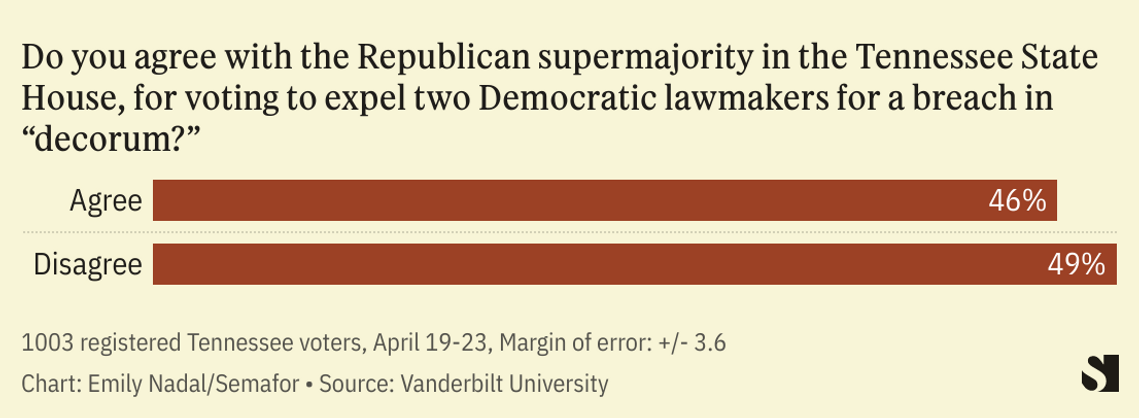 Last month’s brief expulsion of Justin Jones and Justin Pearson turned both state legislators into national Democratic Party figures, fetéd at the White House. National polling found most Americans disagreeing with the Republicans who’d punished them. Polling in Tennessee’s a little better for Republicans, but this is one of the least popular things they’ve done with their Nashville supermajority. By contrast, 63% of Tennesseans approve of the new ban on drag performances in front of minors. 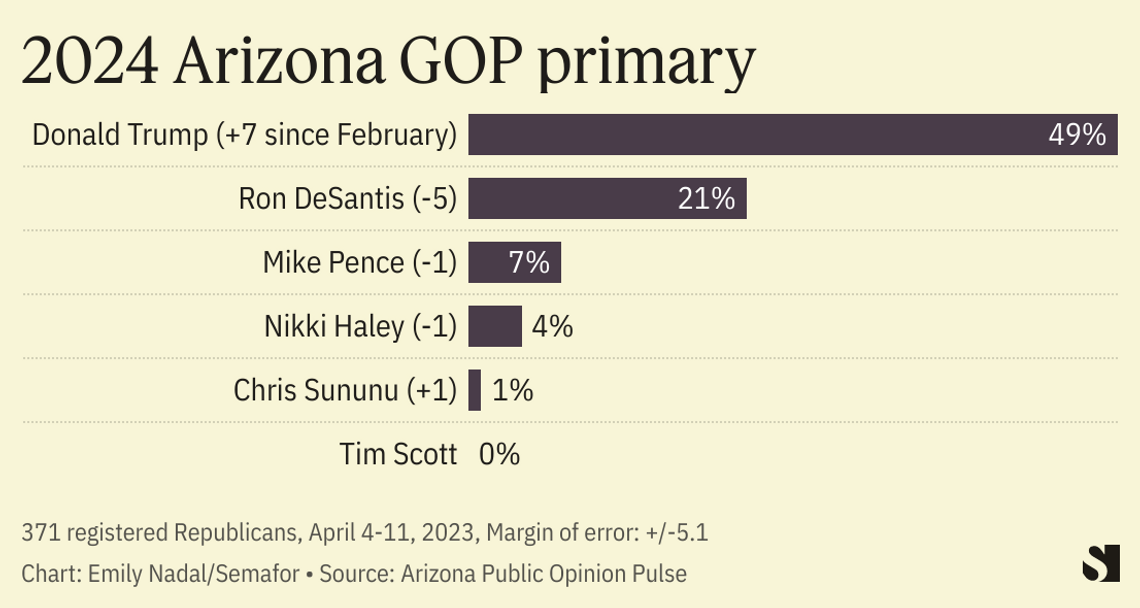 Republicans predicted that his New York indictment would help Donald Trump with their voters, and this is the latest in a string of state polls that find the former president regaining leads that wavered after the disappointing 2022 midterms. Those elections were especially rough for Arizona’s MAGA candidates. DeSantis does best with wealthier Republicans and party moderates, suggesting that most anti-Trump voters are parking their votes with him. That’s even more clear when the field is limited to just Trump and DeSantis — the Florida governor picks up 20 points, while Trump picks up 9, still leading him. (The pollster included ex-Wyoming Rep. Liz Cheney and four other Republicans not making any moves toward a run; support for them added up to 9%.) 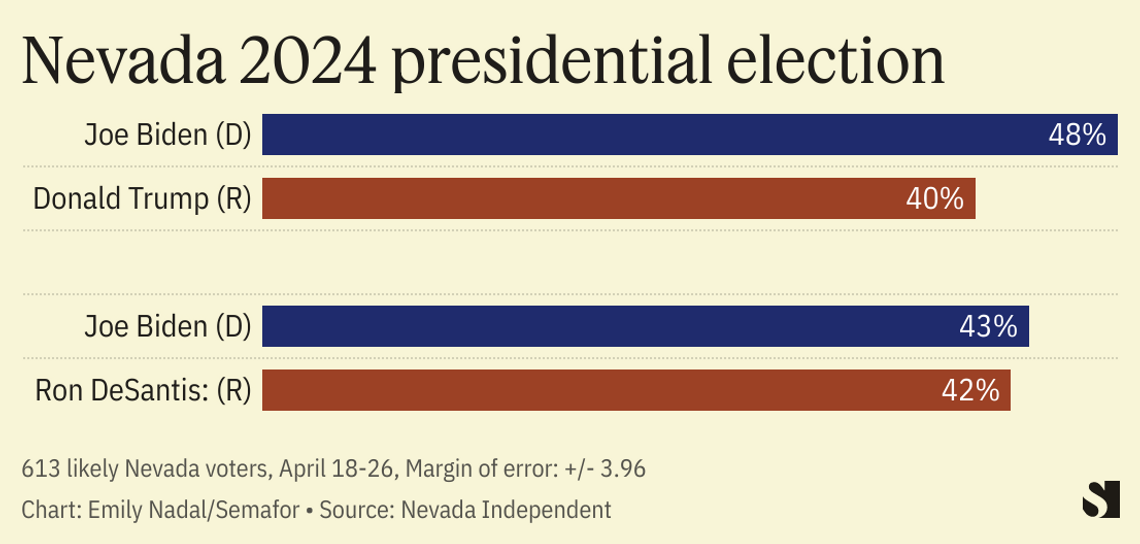 State-by-state polling over the last few weeks consistently found DeSantis running stronger than Trump against Joe Biden, even as the Florida governor gives up ground in the primary. The president won independent voters by 6 points in the 2020 election here, and leads Trump by 12 points with those voters now. DeSantis leads by one point with independents, and the absence of Trump on the ballot leaves some Democrats undecided. |
|
 Twitter/ACTBrigitte Twitter/ACTBrigitteThis week was a breakthrough for cringey computer-generated illustrations — from California Rep. Adam Schiff portraying himself as a Jedi, to Mississippi Gov. Tate Reeves replacing Clint Eastwood’s face with his own, to conservative commentator Brigette Gabriel posting image after AI-generated image of a heroic Donald Trump. What did this mean for the people who actually paint political figures? Jon McNaughton, whose paintings of Donald Trump have traveled widely in MAGA circles, said that the Trump/AI images had “merit to the degree someone identifies with the message and is emotionally moved.” But he was going to keep painting. “I’m an old school artist,” McNaughton said. “I use models and my paintings often take months to complete. AI art will continue to grow as the market looks for convenient solutions, but I think people will always appreciate the real deal. There will come a time when nobody trusts anything they see online because they won’t know what or who is real anymore.” |
|
Late last month, the GOP polling firm Public Opinion Strategies started releasing head-to-head tests of the 2024 election — Joe Biden versus Donald Trump, and Joe Biden versus Ron DeSantis. In every swing state, they found DeSantis running stronger than Trump, leading Biden where he trailed. This made headlines in Nevada, Arizona, Pennsylvania, and Wisconsin, and it got a rise out of the Trump campaign, which accused POS of having “tried desperately for days to try to pitch this fake poll to other outlets.” Robert Blizzard, a partner at POS, said that the polls were paid for by a nonprofit called the Citizen Awareness Project, and shared the crosstabs with Americana. He took a few questions, too, on what the numbers meant. Asked separately about Democratic polling that found DeSantis losing favor with voters thanks to his battle with Disney, Blizzard said that “the only thing I see on that chart is movement among Democrats.” Americana: When you conducted these polls, what did you want to learn? Robert Blizzard: There was interest in the straightforward trial heat, and there was also, obviously, some interest in the down-ticket implications. The data shows a bit of a story there as well. If DeSantis is to run and become a candidate, then there is a benefit to Republicans down ticket. If it’s Trump, then it’s a problem. Maybe that’s surprising, but it makes a lot of sense. If it’s Trump, then the election is a fourth straight referendum on Trump. That did not serve Republicans very well in 2018, 2020, or 2022. If it’s somebody else, like DeSantis, then it becomes more of a referendum on Biden. And you see what Biden’s approval rating is. In the latest NBC poll, where he’s tested against a generic Republican, he’s losing — his number is very close to where his approval rating is. If he runs against Trump, he’s out-running his approval rating by four or five points, depending on the state. Americana: Where is Biden the weakest? Who’s he struggling with? Robert Blizzard: Seniors, independent voters, suburban voters. When I say “weakness,” it means that when he’s up against DeSantis, it’s a competitive ball game. I’m not saying if DeSantis is the nominee, Republicans will win by 40 points in the suburbs. But it’s playable. And that’s largely because Trump is so toxic in the suburbs. You’ve got a net 5-point shift for Republican candidates if Trump is not on the ticket. I don’t think that there is a state or a district in the country, or a congressional district, or a state legislative district —– really, tell me one district or state in the country that voted for Biden over Trump in 2020, that all of a sudden is gonna wake up and say “you know what? We should give that Trump guy a shot.” Americana: Did you find many positives about DeSantis? Is he in a stronger position than NIkki Haley or some other Republican who’s just not Trump? Robert Blizzard: He’s uniquely strong. He has strong name ID, he’s well-known, he’s well-defined. There’s a lot of chatter out there about how he’s doing in the primary, but his general election numbers haven’t changed since April. And I think he has a strong story to tell. I’ve heard a lot of pushback from the Trump folks out there. That’s to be expected. Any poll that’s not positive for them is “fake news” or a “fake poll,” obviously. But what I think is interesting is the pushback we’re not getting from Democrats on these numbers. Democratic pollsters aren’t pushing back because they all want to run against Trump. They know it’s more of a challenge for them if they run against somebody like Ron DeSantis. Americana: At the same time, the conventional wisdom among Trump voters is that the polls are wrong. It’s ‘you told us he’d lose in 2016, you said 2020 wouldn’t be close, and he over-performed, so why trust these numbers?’ Robert Blizzard: I mean, he lost. What do you want me to say? Instead of losing by 5 or 6, if he loses by 3 or 4, he still f***ing lost. In 2018, his poll numbers were bad and we lost the House. In 2022, MAGA candidates cost us seats. Sometimes the polls do underestimate his support, but you’ll hear people claim that he didn’t even lose in 2020. There’s a lot of crap coming from that side. |
|
- 11 days until primaries in Kentucky and Philadelphia
- 126 days until the special congressional election in Rhode Island
- 184 days until elections in Kentucky, Louisiana, New Jersey, Mississippi, and Virginia
- 550 days until the 2024 presidential election
|
|
If you’re enjoying Semafor Americana and finding it useful, please share with your family, friends and colleagues. To assure this email doesn’t go to your junk folder, add americana@semafor.com to your contacts. In Gmail you should drag this newsletter over to your ‘Primary’ tab. Also please send feedback! We want to hear from you. — Dave |
|
| |








